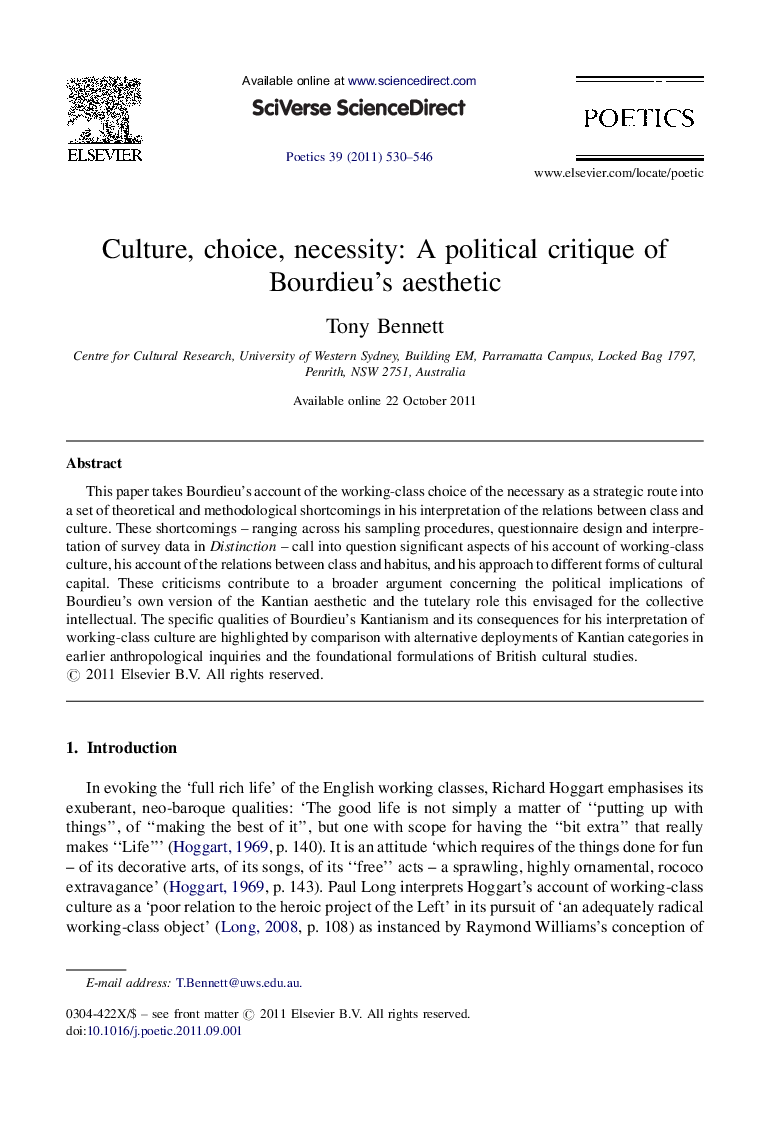| Article ID | Journal | Published Year | Pages | File Type |
|---|---|---|---|---|
| 1128596 | Poetics | 2011 | 17 Pages |
This paper takes Bourdieu's account of the working-class choice of the necessary as a strategic route into a set of theoretical and methodological shortcomings in his interpretation of the relations between class and culture. These shortcomings – ranging across his sampling procedures, questionnaire design and interpretation of survey data in Distinction – call into question significant aspects of his account of working-class culture, his account of the relations between class and habitus, and his approach to different forms of cultural capital. These criticisms contribute to a broader argument concerning the political implications of Bourdieu's own version of the Kantian aesthetic and the tutelary role this envisaged for the collective intellectual. The specific qualities of Bourdieu's Kantianism and its consequences for his interpretation of working-class culture are highlighted by comparison with alternative deployments of Kantian categories in earlier anthropological inquiries and the foundational formulations of British cultural studies.
► Explores the tensions between different aspects of Bourdieu's account of working-class culture. ► Identifies significant shortcomings in the methodologies of Distinction. ► Throws new light on Bourdieu's relations to Kantian aesthetics.
